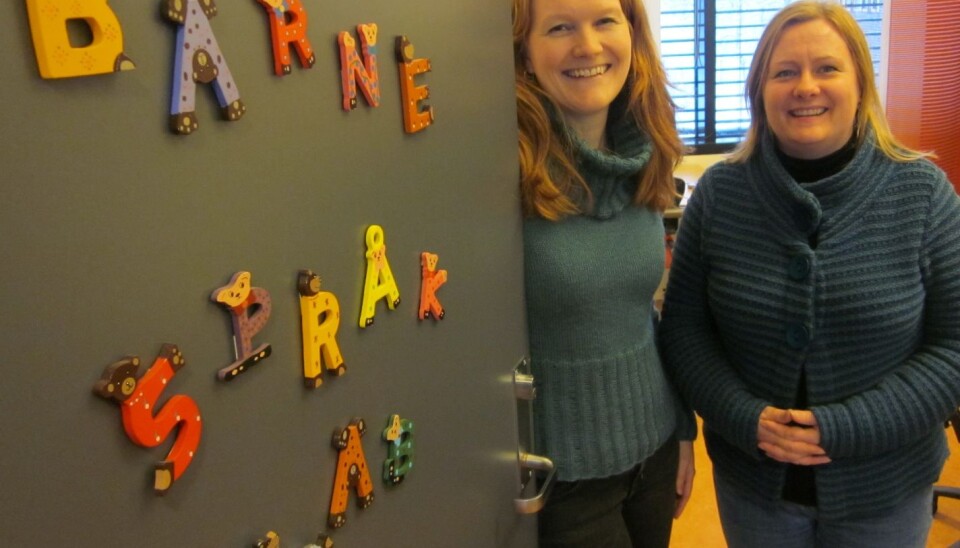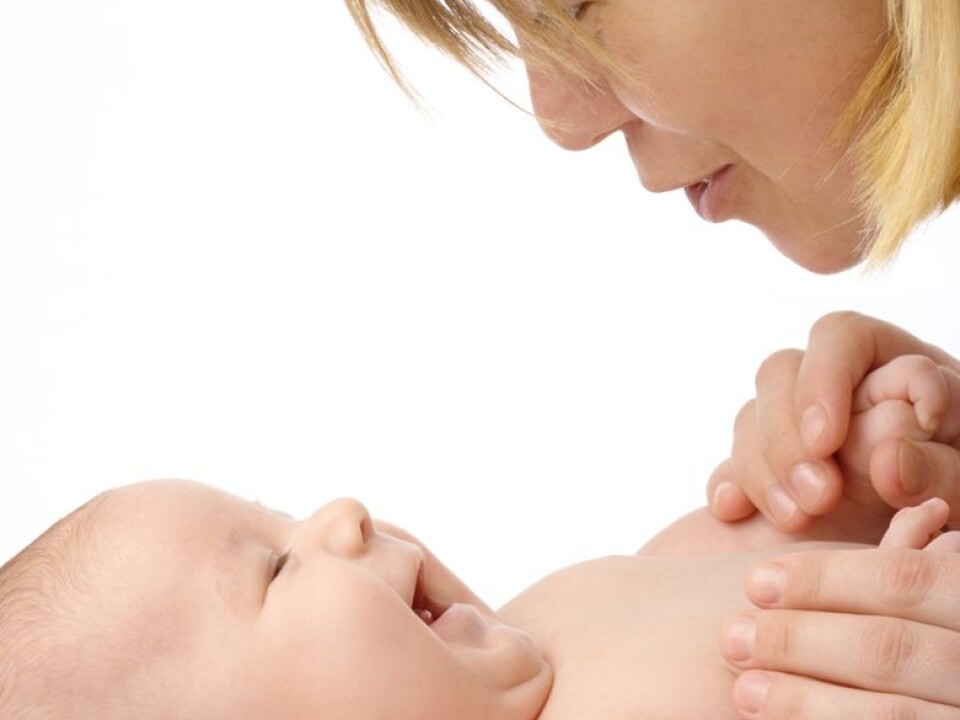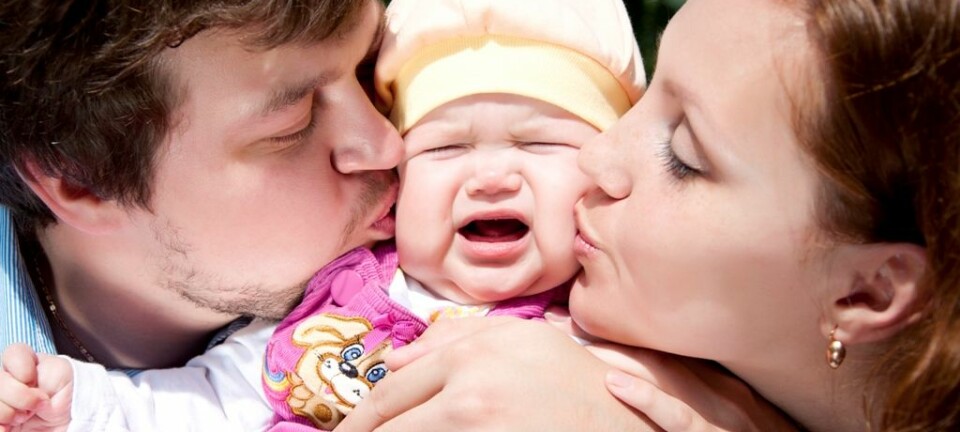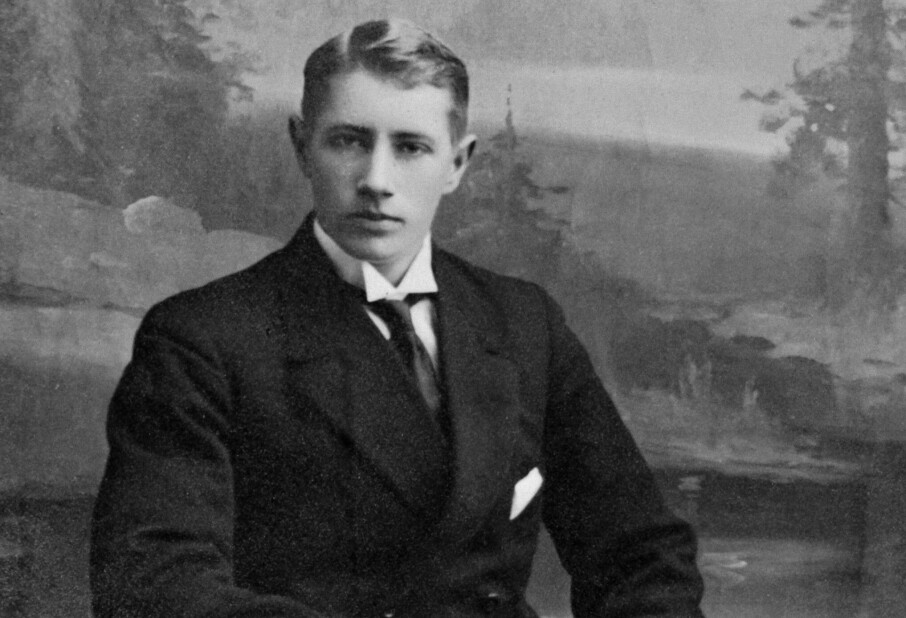
Make your baby bilingual
Linguists say it’s never too early to learn two languages.
Denne artikkelen er over ti år gammel og kan inneholde utdatert informasjon.
Bilingual children achieve an awareness of language – and do so earlier than other children. The sooner they start out with two, the more proficient they become.
So say Kristine Bentzen, researcher at CASTL (Center for Advanced Study in Theoretical Linguistics), and Merete Anderssen, an associate professor at the Department of Language and Linguistics, both at the University of Tromsø.
A host of theories and advice is in circulation regarding the ways children relate to language in families where the father speaks one language and the mother another.
“It used to be more common for the child to learn one language first and then introduce the second language,” says Bentzen.

“But that was doing the child a disservice. It’s too late if you wait until the child starts school.”
According to the linguists, it becomes harder for a child to start speaking a second language if, for instance, it has become accustomed to speaking only Norwegian for four years.
“Age four can be too late for the child to achieve native-tongue competence in both languages,” says Bentzen.
Mum and dad – each with their own language
Another bit of accepted wisdom about bilingualism was that it’s best if mum speaks only the one language, while dad uses the other. This was thought to help the child distinguish between the two languages – in accordance with who was talking.
“The problem with this method is that the child doesn’t hear the least-used language often enough,” explains Anderssen.
This brings us to the researchers’ core argument: a child who’s going to learn two languages has to hear both of them frequently enough. And the child has to have the opportunity to speak both of them.
There must be sufficient exposure time to both languages for the child to master both.
“A bilingual child only has as many waking hours as other kids. It's got just as many hours available to learn two languages as another kid has to learn a single language,” says Anderssen.
It follows that if you learn two languages you will generally be hearing each of them less. So the linguists say the most important thing for parents to do is to expose the child frequently enough to both languages.
This can be done in a number of ways.
“Whatever comes most naturally is best,” says Bentzen.
Daily use is vital
Daily use is the clue to giving the child the maximum language competency.
“A bilingual child needs plenty of opportunities to use the language,” says Bentzen.
“Of course this applies to the parents, but it’s also possible to establish other arenas where the child can speak its secondary language.”
Bilingual children can meet, or use the lesser language with grandparents, uncles and aunts. Play groups or other such forums can be organised where the child can speak the language that is less represented in society.
“Preferably both languages should be in daily use, but all contributions are helpful,” says Anderssen.
Her husband is a native English speaker and she has three children. She chose to make English the family’s main language. That means she, although a native Norwegian speaker, also speaks English to her children.
She isn’t worried about the consequences.
“As it happens my English is very good, but the most important thing is that my kids hear English as much as possible − even though it is not my mother tongue.”
All three of her children now have native speaker competence in both English and Norwegian.
“Because around here they learn Norwegian everywhere else,” says Anderssen.
Concern about bilingualism
Many parents who speak separate tongues are worried about their children’s language development, according to the linguists. A common concern is that the children will be confused by a bilingual daily life.
Previous research has concluded that parents in bilingual families should speak the dominant language at home. The idea was that the children’s school accomplishments would suffer if they spoke the second language within the family.
“But bilingual children don’t get confused,” says Bentzen.
“Kids have an amazing capacity when it comes to language and they learn to tackle different language situations just fine.”
Another parental concern is that their children could end up mixing the two languages.
“It’s not uncommon for bilingual children to borrow words from the one language while they’re speaking the other. But that doesn’t mean they are confused. Adults do this too,” says Anderssen.
Mixing languages isn’t a problem; rather it’s a natural part of being bilingual, say the two linguists. Even if they mix them a little, the kids learn to discern between the two languages.
Why two languages?
Bentzen and Anderssen believe there are numerous reasons for teaching kids two languages.
“The ability to learn language is at its peak when we are really young. It’s actually an inherited trait,” says Bentzen.
“Sometimes bilingual children develop language a little more slowly than kids with just one language, and they can have more limited vocabularies to start with,” says Anderssen.
“But this is a small price to pay compared to the great advantage it is to master two languages.”
------------------------------
Read this article in Norwegian at forskning.no
Translated by: Glenn Ostling
External links
- CASTL - Center for Advanced Study in Theoretical LinguisticsCASTL - Center for Advanced Study in Theoretical Linguistics
- Information site More languages to more people
































